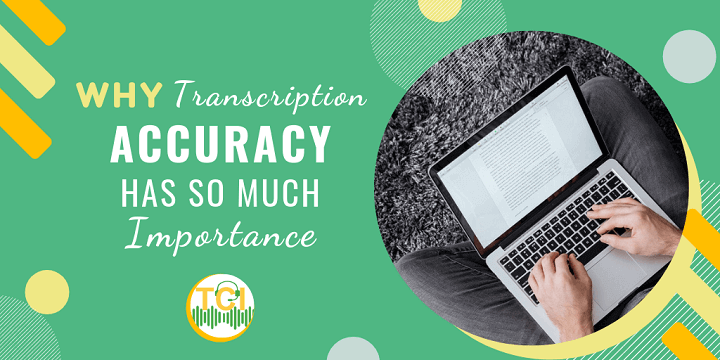
Transcription is quickly becoming one of the most popular jobs for individuals who want to be financially independent. Whether they want to work from home or are interested in working in an office setting, transcription offers an opportunity to prove yourself through a commitment to excellence. This includes being consistent with deadlines and providing clients with the highest level of accuracy possible.
Transcribed documents are basically written versions of what someone says. It is of the utmost importance that each transcribed document be as accurate as possible. In some cases, even one very small error can change the context of an entire document, putting the person's credibility at risk. While some forms of transcription have more room for error than others, it is extremely important that a transcriptionist always strive to do their best, most accurate, work at all times.
Related Read: The Best Transcription Services - Transcription Service Quality Study 2019
Statements or depositions that are transcribed are giving a written testament to what the person said. In order for the transcribed document to be completely accurate, it should read verbatim compared to what was stated in the recording. Some people avoid verbatim transcription because it includes every noise, sound, pause, or utterance. In some cases, it may be up to the transcriptionist to determine what is perceived through the use of inflection and gesture.
Different transcription jobs have different accuracy and formatting requirements. With that being said, doing your best work and always going the extra mile to check for accuracy ensures that you will earn a reputation based on quality work and diligence in terms of providing top-quality content with every document you submit. A transcriptionist's accuracy standards that they set for themselves should meet or exceed those of the industry within which they work.
Legal transcription, especially when it comes to depositions, witness testimonies, and court documents, requires a high level of accuracy. The outcome of a court case will often depend on witness testimony. Any errors within a transcribed document can cause issues with the credibility of a witness or may even jeopardize the outcome of the case.
 Transcription jobs in the legal field require the strictest level of accuracy. Within this industry, the margin for error is very small and even the smallest of errors can cause an entire document to be called into question. Although transcription jobs found in the corporate sector don't require the highest level of accuracy, it is still important for the transcriptionist to maintain the highest possible standards to protect their own reputation.
Transcription jobs in the legal field require the strictest level of accuracy. Within this industry, the margin for error is very small and even the smallest of errors can cause an entire document to be called into question. Although transcription jobs found in the corporate sector don't require the highest level of accuracy, it is still important for the transcriptionist to maintain the highest possible standards to protect their own reputation.
Testing for quality in terms of transcription accuracy is one way for the industry to certify transcriptionists to ensure they meet or exceed industry standards. Part of the testing process includes identifying how the transcriptionist transcribes and formats each document for both accuracy and professionalism. Transcriptionists who are tested per industry standards are able to identify potential strengths and weaknesses to help them improve both their technique and job performance.
At Transcription Certification Institute, the ultimate goal is to provide transcriptionists with the tools and skills they need to be as accurate and professional as possible at all times. This can allow them to get the jobs they want and gain the financial independence they need to be successful.
Your TRANSCRIPTION CAREER CAPSULE to Help You BOOST Your Potential
Latest Industry News, Jobs, Tips and More..

Comments are closed